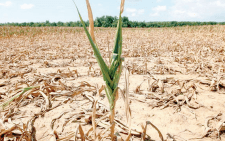United Nations: Cut down on meat to ease global warming

Geneva, Thursday
Global meat consumption must fall to curb global warming, reduce growing strains on land and water and improve food security, health and biodiversity.
A United Nations report released Thursday on the effects of climate change says the high consumption of meat and dairy produce is fuelling global warming.
Although the report stopped short of explicitly calling on everyone to become vegan or vegetarian, it called for big changes to farming and eating habits to limit the impact of population growth and changing consumption patterns on stretched land and water resources.
Plant-based foods and sustainable animal-sourced food could free up several million square kilometers of land by 2050 and cut 0.7-8.0 gigatonnes a year of carbon dioxide equivalent, the UN’s Intergovernmental Panel on Climate Change (IPCC) said.
“There are certain kinds of diets that have a lower carbon footprint and put less pressure on land,” Jim Skea, professor at London’s Imperial College and one of the report’s authors said on Thursday.
The IPCC met this week in Geneva, Switzerland to finalise its report which should help to guide governments meeting this year in Chile on ways to implement the 2015 Paris Agreement.
Cutting emissions
“We’re not telling people to stop eating meat. In some places, people have no other choice. But it’s obvious that we’re eating far too much,” said Prof Pete Smith, an environmental scientist from the UK.
Land can be both a source and sink of carbon dioxide, the main greenhouse gas blamed for global warming, and better land management can help to tackle climate change, the IPCC said.
But it is not the only solution and cutting emissions from all sectors is essential to curtail global warming.
“The window for making these changes is closing fast. If there is further delay in reducing emissions, we will miss the opportunity to successfully manage the climate change transition in the land sector,” it said.
Since the pre-industrial era, land surface air temperature has risen by 1.53 degrees Celsius, twice as much as the global average temperature, causing more heatwaves, droughts and heavy rain, as well as land degradation and desertification.
The Earth’s land surface, and the way it is used, forms the basis for human society and the global economy. But humans are re-shaping it in dramatic ways, including through the release of greenhouse gases into the atmosphere. -Reuters













